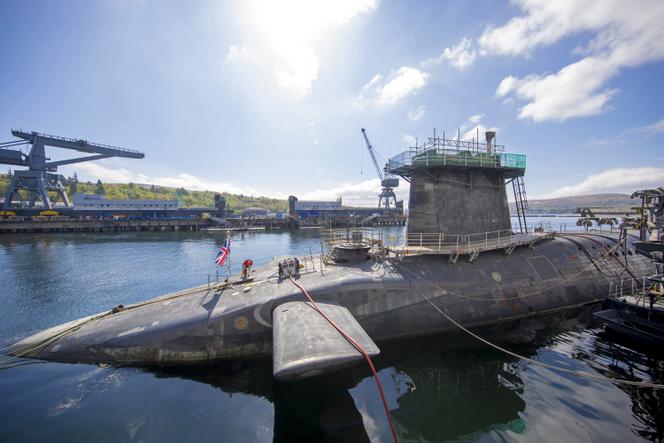


The test-fire of a missile launched by the Royal Navy from one of its nuclear submarines off the coast of Florida on January 30 ended in failure, an article published on Wednesday, February 21, in the tabloid paper The Sun revealed. The daily reported that the 58-ton missile, part of the Trident program − a critical component of the nation's nuclear deterrent − and fitted with a dummy warhead, was fired from the submarine HMS Vanguard. After launching out of the water, however, its first booster failed to ignite and the missile fell back into the ocean just a few meters from the vessel. British Secretary of State for Defense Grant Shapps had a front-row seat to the mishap: he was on board the submarine at the time of the misfire.
The UK Ministry of Defense acknowledged the accuracy of the tabloid's scoop and issued a statement saying that an "anomaly" had occurred during the launch. Nonetheless, it also noted that HMS Vanguard and its crew had "proven fully capable" in their operations and that the test had "reaffirmed the effectiveness of the UK's nuclear deterrent." The Trident system, manufactured by the American company Lockheed Martin, remains "the most reliable weapons system in the world," with 190 successful test launches to its credit, the ministry added.
Still, the news has been an embarrassment for the UK (and the United States), as this was the country's second failed Trident missile test in a row, following the one from HMS Vengeance in 2016. In that instance, per the Sunday Times, the missile was launched off the coast of Florida with an intended target at sea off of Africa, but it changed course mid-flight and headed toward the US, at which point it was destroyed. The last successful test of a Trident missile was in October 2012. Test firings are rare because they are extremely expensive, with each missile costing around £17 million.
Whether the misfire might have been due to maintenance issues remains unclear, as details of the failure have yet to be released. Victoria Atkins, the Sunak government's health minister, who represented Downing Street on television on Wednesday, referred to a matter of "national security." Conservative MP Tobias Ellwood, ex-chairman of the parliamentary defense committee, was a bit more forthcoming, disclosing on the GB News television channel that the problem may have arisen "from equipment that was attached to the missile itself that prevented the firing of the rocket system after the missile had left the submarine."
You have 50.4% of this article left to read. The rest is for subscribers only.
